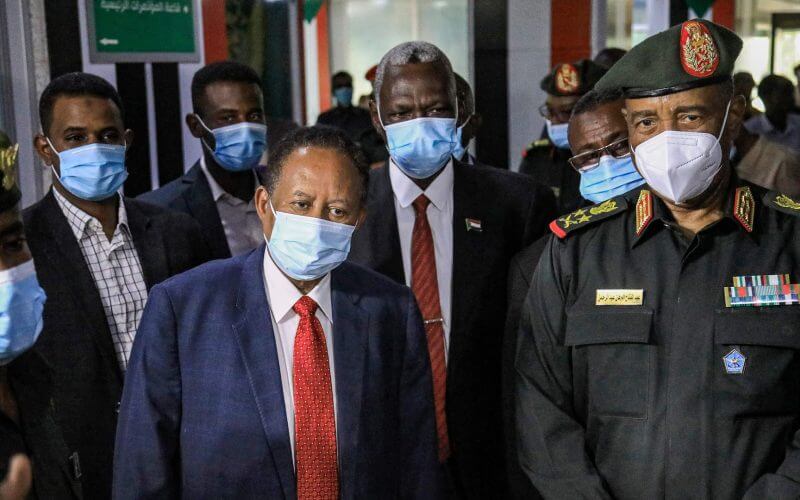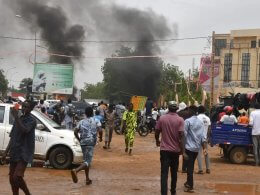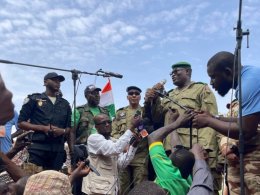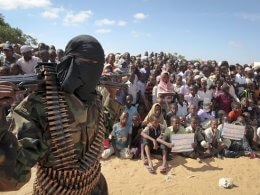Axios
The resignation of Prime Minister Abdalla Hamdok leaves Sudan's military with the difficult task of trying to find a replacement with broad domestic and international support.
Why it matters: Hamdok’s long-awaited resignation came amid a months-long political crisis that is nowhere near over. The U.S. and other international actors fear it was another blow to Sudan's sputtering democratic transition.
- Meanwhile, more than 50 people have reportedly been killed in protests against the military that began after Hamdok was toppled in an Oct. 25 coup and have continued since he was reinstated a month later.
Driving the news: A downbeat Hamdok appeared on national television on Sunday night, announcing his resignation and lamenting that he had desperately tried but failed to bring about national consensus.
“My acceptance of the assignment to the position of prime minister was on the basis of a political consensus between the civilian and military components, which I had preached as a unique Sudanese model. But it did not survive with the same degree of commitment and harmony with which it began.”
-Hamdok
Behind the scenes: Hamdok's resignation had been in the works for several weeks, but was delayed by pressure from the military, political forces in Sudan, and international players who sought to keep alive the Nov. 21 agreement in which Hamdok was released from house arrest and restored to his position.
- The agreement, signed with Gen. Abdel Fattah al-Burhan, the head of Sudan's Transitional Sovereignty Council, called for Hamdok to form a "technocratic" and "non-partisan" Cabinet.
- That left him boxed in, with interference from the military and its political allies on one side and pressure from protesters and the Forces of Freedom and Change (FFC) — the pro-democracy political alliance that first nominated him for the job in 2019 — on the other.
What they're saying: A senior FFC source said Hamdok came to realize that even if he managed to form such a Cabinet, it would be rejected by the protesters.
- The FFC has also criticized Hamdok for signing a deal without consulting them. An aide to Hamdok pushed back on that criticism and told me Hamdok had been trying to prevent further bloodshed.
- The military, meanwhile, has claimed squabbling politicians have derailed the transition that began after dictator Omar al-Bashir was toppled in 2019.
State of play: On Tuesday, the EU, Norway U.S. and U.K. sent a public message to the Sudanese military warning that they would "not support a Prime Minister or government appointed without the involvement of a broad range of civilian stakeholders."
- Secretary of State Tony Blinken also spoke with the foreign ministers of Saudi Arabia and the United Arab Emirates, both of which have influence on the Sudanese military.
What’s next: The FFC official said the military has two choices: revert to the Bashir era of domestic repression and conflict with the international community, or seek a settlement that is acceptable to the major players to get the transition back on track
- Both are equally likely, the source said, adding that Sudan's economic crisis may act as a catalyst for a resolution.









